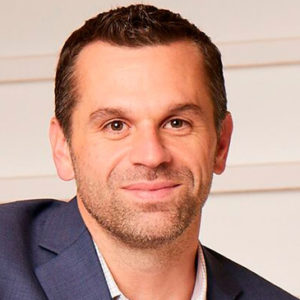Beeswax offers a “bidder-as-a-service“, a DSP-like ad-buying software that sits in buyers’ own clouds and uses a software-as-a-service pricing model.
In this video interview with Beet.TV, FreeWheel general manager Dave Clark explains the rationale behind the acquisition, and how he sees 2021 panning out.
Expanding demand
“Our publisher client base – publishers and distributors in Europe and in U.S. – have been looking to us increasingly for help sourcing demand,” Clark says.
“They themselves are often out buying inventory, co-mingling others’ inventory with their own, and wanting to manage frequency across all of it.
“So, given the appetite that exists from our existing client base, we’ve been investing in that area over the last couple of years. We’ve had a lot of success with it, but adding Beeswax is just a huge accelerant to it.”
Bidding service
The deal also means that Beeswax now gets to do more in a connected TV (CTV) space that is rapidly expanding.
AdExchanger writes that its technology approach, giving users more control, will appeal to CTV buyers, given the higher rates of CTV inventory compared with standard display.
“We love that kind of philosophy that they’ve brought that to market,” Clark adds.
“They’re not a DSP, they haven’t gone out to compete against DSPs, but they’ve created this sort of customizable bidder, largely with the more sophisticated kind of buyers and media in mind.”
Today we announced we've agreed to be acquired by Comcast's @FreeWheel. We couldn't be more excited for the journey ahead and to deliver even more for our customers and partners. Read more: https://t.co/StwlwcDoqB
— Beeswax (@BeeswaxIO) December 17, 2020
Market growth
The deal is expected to close in January 2021. That will be a year looked to closely as the world continues grappling with COVID-19 effects.
“We saw advertisers this year, as they started to reenter the market, really prioritise more efficient, more targetable methods of reaching audiences, which just accelerated existing trend,” Clark says.
Connected TV ad spending next year will jump 40% to $11.4 billion in the United States, and make up 4.2% of total media spending, researcher eMarketer estimated.

EMarketer last November estimated programmatic TV ad spending will reach $6.69 billion in the US by 2021, more than doubling from $2.77 billion.
Advising Beeswax on the deal was LUMA Partners.
]]>That is the growing refrain from advocates of advanced television advertising techniques like addressable targetability and frequency capping.
They are witnessing a burgeoning set of technical capabilities, and a growing footprint of audiences with the devices to take advantage of them.
But now the industry needs to come together to counter what is a proliferation of such initiatives.
In this video interview during our Beet Retreat In The City event, David Clark, GM & EVP at FreeWheel, tells MTM partner Jon Watts how FreeWheel is seeking partnerships to do that…
Blockgraph for identity
Part of the commonality and interconnectedness that is required concerns identity – or rather, gaining an understanding of consumers’ real identity in a cross-device, post-cookie world, in a way that can be leveraged for TV ad buys.
Recently, Comcast-owned FreeWheel introduced Blockgraph, a new industry initiative focused on creating a more secure way to use data and share information. It is designed to become the “identity layer” for the TV industry, providing a platform on which media companies and publishers can offer marketers data capabilities without disclosing identifiable user data to third parties.
“If you’re a first party data holder, you want the ability to query everybody else’s first party data without having to expose your data to the outside world,” says Clark.
“It’s not just a technological problem. You want to have trust. So we created a thing called blockgraph.
“We’ve incubated it, we spent a lot of money on it… and invite the industry to participate in it. It’s self-funded but not-for-profit entity.
“If you want to join, you run your own node to the graph and, when your data gets queried, you get paid and, when you query other people’s data, you get paid and the match rates are exceptionally high. Then we open it up for all members also to build applications on top of that.”
Addressable scale required
Clark was speaking after Freewheel parent Comcast, Cox and Charter this summer launched On Addressability, a joint initiative to offer advertising customers targeted ads across the outlets.
“We wanted to pull the industry, the major industry, particularly MVPDs to start, to get alignment around how should programmers be enabled, what are the economics behind it, how should it be presented to the marketplace, how should people transact on these things?,” Clark explains.
“(We will) just start a dialogue on that. Not everybody’s going to agree on everything. There’s a recognition in the industry that, until a marketer can run a campaign on some meaningful percentage of American homes in addressable fashion – call it, 70%, just guessing – that the addressable market is not going to emerge.”
Standardization needed
“This year, the big thing we’re hearing from clients in the industry is, ‘We need you to connect us to each other and we need you to play a role, but not alone, in helping with a lot of the operational standards’,” says Clark.
“If you were to list out all the technical problems, the solutions to them are all known. I can probably point to some player in the industry that has solved it.
“The challenge where we are now, and different players are different states … Charter’s doing amazing things, Comcast’s doing amazing things, Dish is doing amazing things, AT&T, programmers, so on and so forth. The next phase is standardising all that.
“It’s just got to fill in the gaps, get it to connect and put the business standards on top. The measurement, the transaction types, remove the friction.
This video was produced at the Beet Retreat leadership event hosted Publicis Media in New York. The event and video series is sponsored by FreeWheel and LiveRamp. For more videos from the event, please visit this page.
]]>Deprecated: ltrim(): Passing null to parameter #1 ($string) of type string is deprecated in /home/superbeet/dev.beet.tv/wp-includes/wp-db.php on line 3030
 While systems for advance targeting ads to individuals and groups have been well established for digital video, these solutions are becoming increasingly attainable for linear television programming. This emerging sector will be on of the main topics of a half-day Beet.TV event on October 22 hosted by Publicis Media and sponsored by FreeWheel and LiveRamp. See the speakers and moderators on this page.
While systems for advance targeting ads to individuals and groups have been well established for digital video, these solutions are becoming increasingly attainable for linear television programming. This emerging sector will be on of the main topics of a half-day Beet.TV event on October 22 hosted by Publicis Media and sponsored by FreeWheel and LiveRamp. See the speakers and moderators on this page.
In advance of the event, we interviewed one of the event’s keynote speakers, David Clark, GM & EVP at FreeWheel, a Comcast company.
“You’re starting to see technologies come online in that world that do look and behave more like digital,” says Clark, in this video interview.
“Take just ad serving, for example. The concept of ad serving has never existed in linear television, that sophistication. It’s been more of a scheduling exercise.”
But companies like FreeWheel imbue their ad serving technology with awareness of TV schedules, allowing broadcasters to serve customized ads for play-out.
“That provides the publisher first with pretty meaningful improvements to their own yield, their own ability to use their inventory to drive more value for marketers.” Clark says.
This is the “first step” in connecting up linear and digital ad inventory, says Clark.
Household Addressability Is Happening
Clark says household-level addressability customized ads in linear schedules are finally real, after years of anticipation.
He was speaking after his Comcast, Cox and Charter this summer launched On Addressability, a joint initiative to offer advertising customers targeted ads across the outlets.
Speakers & Moderators on October 22, Hosted by Publicis Media:


















To request an invitation, visit this page.
Presented by

“You sit across all of it and see it all and are close to the technology because you’re building the technology. Help us sort of translate that over to the buy side,” is how FreeWheel GM Dave Clark explains the first part.
“The second big shift we’ve seen in our business is a growing number of our publisher clients are now asking us to bring demand to the table, because providing world class software to manage their monetization is not enough” Clark, who is General Manager, FreeWheel, A Comcast Company, adds in this Beet.TV interview at the recent FreeWheel NOWFRONT event in Manhattan.
Not that long ago, the company’s clients were quite content with FreeWheel being a technology provider. “But now there are other software players in the ecosystem who are trying to disrupt the ecosystem by bringing demand to the table, so they’re asking us to do the same.”
Clark says a key differentiator for the new FreeWheel Media is that it has designed solutions, business rules and swim lanes “together with our publishers, so it’s complementary to their business and can enhance their business, which is really important to them.”
The backdrop against which the TV industry is trying to harmonize and unify targeting, measurement and attribution is the reality that media buyers know how easy these things can be done on digital platforms, according to Clark.
FreeWheel’s intended takeaway for attendees of its NOWFRONT event is that while “there’s a lot of complexity in doing this, but we’re working hard at it. Here’s where we are, therefore here’s what you can buy today, here’s what we need to solve next and please work with us on that.”
This video is part of Beet.TV’s coverage of The FreeWheel NOWFRONT: Media Reimagined. For more coverage from the series, please visit this page.
]]>The short summary of their back and forth would be that from a cross-platform perspective, TV is still “a mess” and that despite much talk about industry collaboration among competitors, reality is bound to intrude when companies like Comcast and Disney wage their inevitable marketplace battles.
Gerber has been on the sell- and buy-side and is currently President of Global Media Investment for GroupM’s Essence agency. Clark is EVP of Advanced Advertising at Comcast & GM of FreeWheel.
In trying “to make supply make sense,” Comcast has scooped up no fewer than five companies—from FreeWheel to STRATA, under the FreeWheel brand—with the overarching goal of unifying linear and digital by removing a lot of the fragmentation and friction among the tv infrastructure, working on addressable technology, decisioning, and making life easier for marketers at the end of the day. The competitive backdrop is the ease of use of such platforms as Amazon, Facebook and Google.
“Whether you’re a programmer or you’re a marketer, you cannot run one campaign across TV. You cannot have it optimized in real time, you cannot get a report. You have to go hire an army of people to do that,” Clark observed.
This is why “television is not a platform…it is hundreds of sales teams, different ways of selling depending whether you’re local or national, measurement’s all over the place.”
As for Amazon, Facebook and Google, “Yes they’re walled gardens but they are unified tech and data platforms and they can bring sort of a seamless solution to marketers there’s no question about that. TV is not that,” said Clark. “Programmers are unified in wanting one campaign across linear and digital environments, which FreeWheel serves against all–including STB VOD–so that programmers can have everything unified.”
Never one to beat around the bush, Gerber put aside digital/linear unity for the more timeless question of competitive media selling, particularly as it pertains to national TV avails. “The fact of the matter is, most inventory still trades in television in a traditional unit linear model and it’s controlled by independent sellers,” said Gerber. “I care about the national avails that the national networks control because that’s where the bulk of viewing occurs. I need that brought together with the local avails, with the digital avails, everything together on one platform like you said with Google and Facebook. I don’t see that happening.”
Clark recalled when TiVo launched in 1995 and some people predicted “this is the end of television, it’s all going to change.” From his vantage point close to technology, he likened the state of affairs as “driving towards a mountain on the horizon, it doesn’t look like you’re ever getting close to it and then one day it’s right in front of you. There are massive investments right now going into the technology needed to clean this up.”
Gerber: “Who’s your competitor? Are you guys all going to work together to help us figure this out? Are you all going to compete with each other?”
This is where reality intruded. Just one day before, it was announced that Disney had chosen Google over FreeWheel to handle its digital advertising, as Advertising Age reports.
“They make the decisions that are in their best interests of course,” said Clark. “It’s undeniable that Google now has a massive beachhead in the industry. There’s no question about it.”
This video was produced in San Juan, Puerto Rico at the Beet.TV executive retreat. Please find more videos from the series on this page. The Beet Retreat was presented by NCC along with Amobee, Dish Media, Oath and Google.
]]>From his position as GM, EVP, Advanced Advertising, FreeWheel, Comcast Clark sees broad recognition that “there’s an opportunity to coalesce a platform, bring audiences together, share data and offer marketers a more unified look into inventory, unified planning,” he explains in this interview with Beet.TV at the annual DMEXCO conference. “Make it all easier. That’s a huge sea change.”
FreeWheel has been preparing for this change for about a decade, something that now fills the time of some 1,500 people. “We’re all focused on one thing: solving the very complex software and data issues around television, making it interoperable and driving economics for the programmers and for marketers.”
Media buyers understand the power of platforms because of the billions of dollars they routinely allocate to the likes of Facebook and Google in return for reach, targeting, unified pools of inventory and ease of use, according to Clark. They’ve been asking television to do the same.
“I think when television gets all of this together, the buy-side is ready to go. It’s a very big shift. You’re seeing the buy-side also invest in technology, which we’re excited about as well and we’re providing a number of solutions there to connect up to the supply,” Clark says.
Noting that the consumer “is the one piece of the puzzle that we don’t control,” he cites the continuing shift toward on-demand TV environments and lower ad loads. On the latter subject, there are limitations.
“We’ve also seen examples where the right ad loads and the right sort of targeting offsetting subscription fees or even with subscription fees can be very appealing to consumers. So there’s a long march in that direction.”
To properly manage inventory yield and the viewer experience is a balancing act that will require more time to achieve because “you need tools that the industry doesn’t have scaled yet, like addressable technology, better yield management tools, those kinds of things. All of which is coming on line very quickly and we at FreeWheel are powering most of that.”
This interview is part of a series titled Advertising Reimagined: The View from DMEXCO 2018, presented by Criteo. Please find more videos from the series here.
]]>Such was the case at the 2018 Cannes Lions International Festival of Creativity when Marchese was interviewed on stage by Dave Clark, GM of Comcast’s FreeWheel, as part of the FreeWheel Forum on the Future of Television.
Never one to mince words, Marchese described the complexity of trying to figure out just how many commercials a given consumer is willing to watch on a given platform and how sellers like Fox should price newly emerging ad formats.
What’s not complicated is the silent clock ticking in the background for an industry that is known to advance in capsulized increments, according to Marchese.
President of Advertising Revenue at Fox Networks Group, Marchese was blunt about “what sucks” about television. “TV and advertising have been for so long negotiating with each other and they didn’t have to worry about a third party in the negotiation. Building a business model for consumers first, that’s what’s different,” Marchese said.
“Why does anybody like you?” asked Clark.
“I’m not sure anyone does. I say what other people I think are thinking, I hope,” Marchese responded.
The ticking clock analogy refers to the two or three years he estimates might pass “before you start to see massive, tectonic shifts in how viewers behave.”
Clark: “Is there a simple way to think about the amount of advertising that consumers will accept?”
“It’s variable,” said Marchese. “The real problem is we haven’t even gotten to how complex it’s actually going to be.”
Since consumers are not “some giant, homogenous group of people” but individuals who value their time differently at different times, “I think we have to have a test and learn approach to what’s intrusive and what isn’t.”
That approach will reveal that there is content people are willing to endure ads to access “and there’s content people won’t sit through ads to get,” Marchese said. “Google’s already doing this in a lot of places. On YouTube, not everyone sees the same ad load. I think TV has to get a little bit smarter about when and where.”
Asked by Clark whether advertisers are willing to pay more for exclusivity in a commercial break, Marchese said “They have and they are” while noting that Fox’s two-ad JAZ pods “sold out early in the Upfront.”
Nonetheless, there’s no easy formula at this point for exactly how much to charge because marketers in certain categories might be willing to pay more, according to Marchese.
“The real problem is, saying what are they worth or how much more is so relative to who buys it. And so until these things are out there and the market can get set, we don’t know how much more yet.”
As a founder of engagement-ad pioneer true[X], a startup that Fox acquired for approximately $200 million, surely Marchese has some advice for TV networks, said Clark.
“Be prepared to work in chaos, things are going to change,” said Marchese before explaining that companies like Amazon, Apple and Netflix are in the video space “because they want to be the operating system for peoples’ lives, but people choose their operating system based on where the best stories are.”
Citing FX, Clark asked whether the highly awarded network holds lessons for other networks. Marchese said it was among the first to abandon the model of producing cheap programming in bulk to fill a 24-hour schedule. This helps to explain why when it comes to Emmy and Golden Globe awards, the most have gone to HBO, Netflix and FX, “and only one of those still sits on a cable-operated system, ad-supported,” Marchese said.
Asked by Clark whether he’s worried when he sees people like Shonda Rhimes leaving ABC and Ryan Murphy exiting Fox to join up with Netflix, Marchese said Ryan indicated that interruptive ads weren’t his main motivation.
“Shows had to be exactly 42 minutes and the episodes had to have exactly these arcs,” Marchese observed. “Then you add in the fact you’re scheduling to a clock that has ads in very particular breaks. When they add a new break, they actually have to add a new act to the show and that’s a lot of actual work and creativity.”
On a positive note, Marchese said that when Fox announced its JAZ pods, Seth McFarland said he wanted them for the entire season of The Orville. “That’s a creator being excited about a better ad system,” said Marchese.
This video is from a series of videos and sessions produced in partnership with FreeWheel at Cannes 2018 as part of the FreeWheel Forum on the Future of Television. You can find more videos from this series here.
]]>That doesn’t seem about to change anytime soon judging from a one-on-one interview with Marchese, who is President of Advertising Revenue at Fox Networks Group, and Dave Clark, GM of Comcast’s FreeWheel, at the 2018 Cannes Lions International Festival of Creativity. Part of the FreeWheel Forum on the Future of Television, the discussion did point to some amount of certainty.
For example, the futures market for national TV inventory known as the annual Upfronts isn’t going away anytime soon, for the simple reason that it protects buyers from price increases the way airlines hedge their bets with oil futures. The process is also something of a comfort to sellers, particularly those with the most coveted (and limited) ad avails.
The search for unification among TV sellers came about because of the digital age, according to Marchese.
“What we’ve never had to compete on before was what the currency metric was because we had Nielsen. People could complain all day about Nielsen, but at least it was consistent for everyone who was trading on it,” Marchese said.
Digital media introduced cost-per-view pricing, but when TV tries to create a new product, “everyone’s like, ‘cool, how does that fit in with what I paid you last year?’ There’s just no consistency.”
Fox has been pushing hard to establish new ad formats while reducing overall commercial load, “But if we do it alone, it won’t matter. You can’t create a market and you can’t understand what the market price of anything is if there’s only one person doing it,” said Marchese.
Given the difficulty in pricing new ad formats in something approaching a consistent manner, the lack of a common market will sow pricing disagreement. “Until then, opinions will differ. And then depending on the creative, one of us is right and one of us is wrong.”
Clark noted that the industry is will run by people who have been at it for two or three decades and asked Marchese what leadership traits and characteristics are most important.
“We need to understand that we’re just used to fighting over things because that’s just the way it was done. We’re used to negotiating with agencies over every penny because that’s just the way it was done.”
Now, in some ways, everyone’s on the same side of the table. “We have the same goal, that we would like to not kill long-form storytelling as an advertising vehicle,” Marchese said.
Responding to a question from the audience about the long-term viability of the TV Upfront, Marchese said he doesn’t think it will die. “I actually think we just get better at predicting where the inventory is going to be.”
Between now and then, he believes the “dumb definition” of a CPM—an impression is an impression—will yield to something akin to the real estate market.
“We analyze real estate not just for the square footage but for where it’s located, what are the amenities, who are the neighbors. There’s a bunch of things we do.”
This video is from a series of videos and sessions produced in partnership with FreeWheel at Cannes 2018 as part of the FreeWheel Forum on the Future of Television. You can find more videos from this series here.
]]>This week, Comcast saw its FreeWheel video ad-tech unit partner with Viacom to improve the future of advanced TV ad advertising.
That adds Viacom to a FreeWheel client list that includes 90% of US programmers, according to Comcast advanced advertising EVP Dave Clark. Clark also holds the title of General Manager of FreeWheel, a unit of Comcast.
Viacom already used FreeWheel to power digital ad decisioning. Now it will also use FreeWheel’s operating platform for premium video, and will deploy features including Holistic Advertising Management to monetize across all screens, FreeWheel’s Unified Monetization Platform and other Comcast technologies.
AdExchanger reported benefits include “managing yield and growing revenue across live TV, set-top box and video-on-demand inventory, plus using Comcast anonymized set-top box data to improve precision in addressable TV targeting”.
In this video interview with Beet.TV, Clark explains the tie-up. It will help clients “understand not just on averages but, deterministically, exactly who has been reached by each campaign, how many impressions and how many devices so that you can frequency cap per viewer, per customer,” he says.
As for Viacom’s choice of partner? “They had choices,” Clark adds.
Clark stepped in to the Comcast role from The Weather Channel, where he had been a president.
“Data will be the life blood of television,” he says. “It’s not as easy to plan and buy and run one campaign across all television or premium video, as it is to do the same with the platforms.
“So, TV’s starting to think, ‘Can television as a whole be a platform?’ Can they start with offering their advertisers the one campaign across their entire portfolio of assets, across all screens?”
]]>